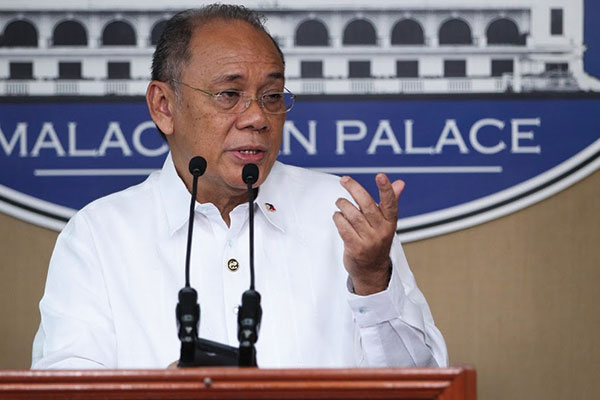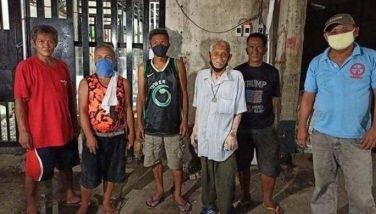Palace on international call for end to killings: We will never accept dictation

Presidential Spokesperson Ernesto Abella, touting the country’s “accomplishments” at the recent United Nations Universal Periodic Review (UPR) in Geneva, said that “some parties” appears to “refuse to understand certain aspects of our human rights efforts.” Presidential Photographers Division/Ace Morandante
MANILA, Philippines — Malacañang on Friday moved anew to assure the international community that there is no culture of impunity in the Philippines after 39 countries expressed concern over the rising number of drug-related killings in the country.
Noting that the human rights situation in the Philippines remains serious, Iceland, reading the statement on behalf of 38 other nations, said the countries remain concerned about the "climate of impunity" in President Rodrigo Duterte's war on drugs.
In response, Presidential Spokesperson Ernesto Abella, touting the country’s “accomplishments” at the recent United Nations Universal Periodic Review (UPR) in Geneva, said that “some parties” appear to “refuse to understand certain aspects of our human rights efforts.”
He added that while Manila welcomes the help of its allies in wiping out narcotics and criminality, the country rejects any “dictation” on how it runs its internal affairs.
“While it is true that 39 countries have expressed concern over drug-related killings, the fact remains that the United Nations Human Rights Council (UNHRC), the highest peer review body in the world on all matters of human rights, unanimously accepted and commended the Outcome Report on the Philippines’ UPR,” Abella said.
READ: Gascon: Rejection of rights recommendations not a victory
The Philippines recently claimed victory after the review of its human rights record at the HRC despite disappointments of several states over Manila's rejection of some key recommendations.
Manila accepted only 103 out of the 257 recommendations forwarded by member states during its third Universal Periodic Review in Geneva last May.
Many nations were disappointed that the Philippines decided to just "note"—a move interpreted by observers as rejection—recommendations related to alleged extrajudicial killings in the Duterte government's so-called war on drugs.
"We will always be happy to accept the help of our foreign friends. But we will never accept dictation on how we are managing our own internal domestic processes," Abella added.
The Philippines, as a member of the international community, sometimes comments on other countries' affairs, most recently in calling for North Korea to end missile tests and to “cease its provocative and highly dangerous actions that threaten the peace, stability and security of the region.”
'No culture of impunity'
Nonetheless, Abella maintained that there is no culture of impunity in the Philippines, adding that the government has already launched an investigation on “all credible allegations of human rights violations.”
“The truth is: Our justice system does not tolerate any state-sponsored extrajudicial killings,” Duterte’s spokesman said.
Police officers implicated in the killing last November of a Leyte town mayor in detention for drugs and firearms charges have been reinstated into active service. The charges against them have also been downgraded to homicide from murder.
READ: CIDG's Marcos returns to duty in Region 12
The president has also assured police and military officers of his backing if they are charged for implementing the government's campaign against drugs. He has also lambasted human rights advocates and have accused them of siding with criminals and drug lords.
In the same statement, the 39 countries also raised the issue of intimidation of human rights defenders and abuses and called on the government to create a safe and secure environment.
They also urged the Philippine government to welcome a visit of Agnes Callamard, the UN special rapporteur on extrajudicial, summary or arbitrary executions, without conditions or limitations.
The other signatories to the statement were Australia, Austria, Belgium, Bulgaria, Canada, Croatia, Cyprus, Czech Republic, Denmark, Estonia, Finland, Georgia, Greece, Ireland, Italy, Latvia, Liechtenstein, Lithuania, Luxembourg, Macedonia, Malta, Moldova, Montenegro, Norway, Poland, Portugal, Romania, Slovakia, Slovenia, Spain, Sweden, Switzerland, The Netherlands and Ukraine.
Some of the new signatories are the US, Canada, Australia, Ukraine and Georgia.
- Latest
- Trending



























